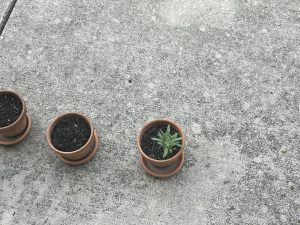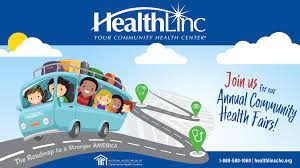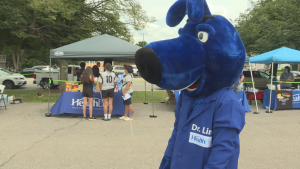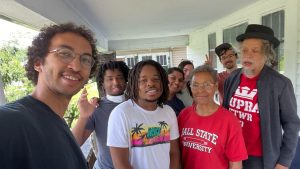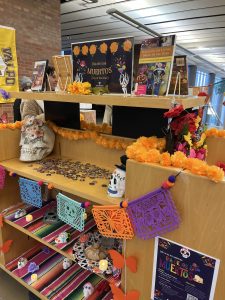 Students and faculty will gather at several locations across campus this week to celebrate Día de los Muertos, a Hispanic cultural tradition honoring loved ones who have passed away. The kick-off event will be an evening of crafting and pozole, a traditional Mexican soup, from 6-8 p.m. on Oct. 30. The Valpo community also had the opportunity to submit photos of their loved ones to be displayed on commemorative ofrendas, Spanish for offerings, on the second floor of the Christopher Center Library, Harre Union, Loke Hall and the Gloria Christi Chapel Nov. 2-8.
Students and faculty will gather at several locations across campus this week to celebrate Día de los Muertos, a Hispanic cultural tradition honoring loved ones who have passed away. The kick-off event will be an evening of crafting and pozole, a traditional Mexican soup, from 6-8 p.m. on Oct. 30. The Valpo community also had the opportunity to submit photos of their loved ones to be displayed on commemorative ofrendas, Spanish for offerings, on the second floor of the Christopher Center Library, Harre Union, Loke Hall and the Gloria Christi Chapel Nov. 2-8.
Sonia Morales, Assistant Director of OMP (Office of Multicultural Programs), and Kat Peters, Assistant Director of the Institute for Leadership and Service (within the Division of Calling and Spiritual Life), have been instrumental in fostering the collaboration that makes these events possible. This year, the celebrations have expanded to other facilities, in part to accommodate students who wouldn’t usually find themselves in the Chapel.
“So, it was a project that was a collaboration between OMP and Calling and Spiritual Life. We wanted to continue working on that, and this year, we wanted to make it bigger,” Morales said. “We wanted to include the library and the Union because [they] are the places where the students are more willing to go.”
Both Morales and Peters are enthusiastic about the opportunities that these partnerships present to reach a wider segment of the Valpo community, and welcome the contributions that other facilities and organizations can contribute.
“It’s really neat, because it does seem like it’s growing. It’s a campus-wide collaboration, which is something that is really important to us here at the Helge [Center] and in Calling and Spiritual Life. [We are] partnering with many places so that we can do projects together,” Peters said.
Morales too expressed the importance of embracing the opportunity to learn from their collaborators and improve their programming by doing so. She hopes that these collaborations will continue to evolve and flourish in the future.
“Something that has been really important is to understand what are things that everyone could bring to the table … We are also learning a lot about the departments that are working with us and we’re thinking [about how] they could keep working with us in different ways,” Morales said.
For Peters, this is an expression of the commitment to holistic education and embracing opportunities that characterize both the university’s mission and the Lutheran faith.
“I think there are some really neat statements out about the university’s calling … For example, it talks about symbols of faith [are] core to our mission, and Lutheran tradition calls us to serve our neighbors, embrace our differences and work to make quality education accessible to all who seek it,” Peters said.
Morales noted the similarities between Día de los Muertos and Christian traditions such as All Saints’ Day. She views the parallels between them as an opportunity for meaningful connection, and a way to come together to process the grief the community has experienced.
“Valpo celebrates All Saints’ Day where we read the names of all who have passed in the previous year … So it’s like we’ve always been doing this. But here’s another specific cultural way we can celebrate and remember, and so we can do this all together,” Peters said. “This is an important part in the healing process. I think with everything going on in the world and coming out of COVID, I don’t think that we’ve processed all of our grief about everything … which is a really healthy thing to do.”
Peters emphasized the mutual benefit of interacting with different cultural traditions, but also believes that Día de los Muertos has an impact that transcends culture. She hopes to continue this in the years to come.
“It’d be great to just keep adding … We are a family and we all get to work together even across cultural differences or bringing different traditions together. And that’s something that’s going to benefit everyone,” Peters said. “So it’s not just a cultural event, it has spiritual and emotional significance that we hope makes a difference in people’s lives.”
Students interested in participating in Día de los Muertos programming can consult the relevant flyers around campus or contact omp@valpo.edu or chapel@valpo.edu for more information.
– Carolyn Dilbeck ’25
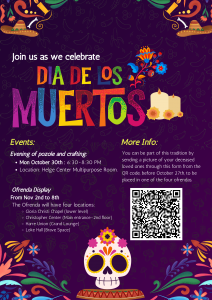
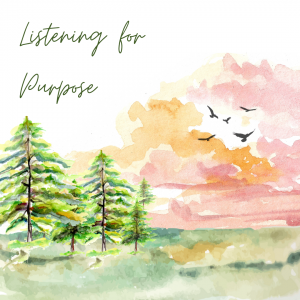
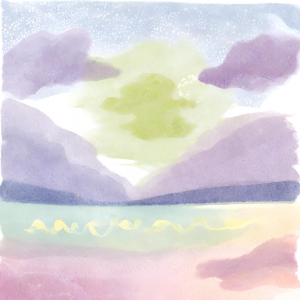 How is your breathing today? When was the last time you took a deep breath?
How is your breathing today? When was the last time you took a deep breath? 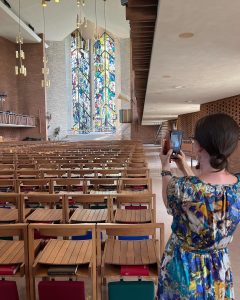


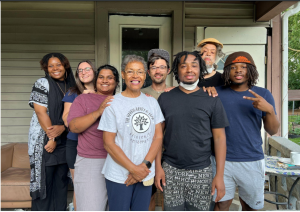
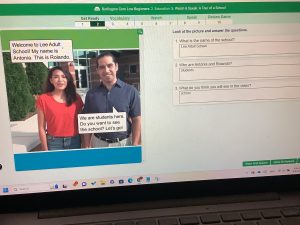
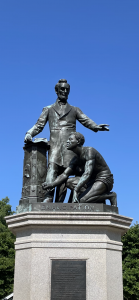

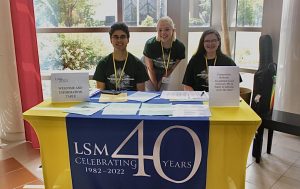

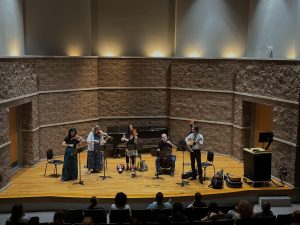
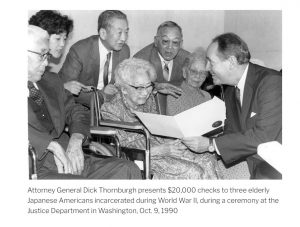
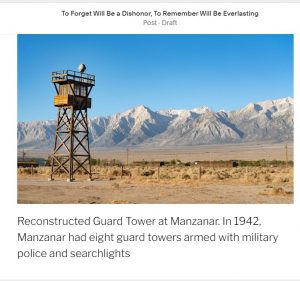
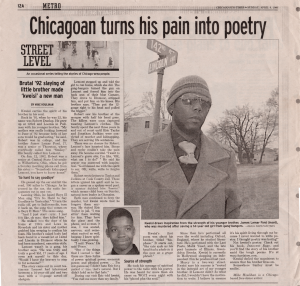
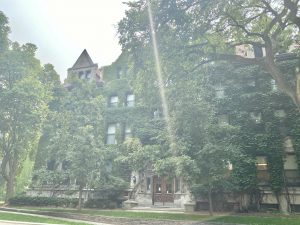
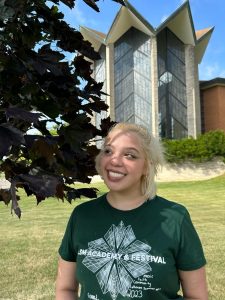 While Lutheran Summer Music, or LSM, has been around for 40 years, this was my first year. As a social work major with an art minor and no prior experience in music, joining the LSM community was intimidating. Luckily, with an art concentration in my background, I know that art comes in many different forms, and all forms of art are enjoyable for me. Although coming into LSM, I knew little about anything musical, nor had I ever listened to ‘nonpopular instrumentals’. So I was a bit out of my comfort zone, although the mindset I had due to my artistic background helped me navigate the unfamiliar territory of music at LSM because it was a completely new world to me. Luckily, the LMS community is very welcoming, which made learning about musical culture easier. As a social work major, my major instructs me to understand and appreciate different cultures; often, this means our norms, values, races, etc. Working with LSM helped me immerse myself in a new culture without feeling pressured to know everything about it; I didn’t feel the guilt of not knowing information about music like I would with the different cultures that we speak about in my major. I feel that this has been an important part of my journey here at LSM. To learn about culture, I have been able to learn how to ask questions about it, how to be respectful, and even how to enjoy it. LSM has not only allowed me to learn about their culture, but they have allowed me to join it too. As I now sing in the chapel choir! Although I do not know how to do things such as read music or necessarily sound good (although I am learning!), they have fostered an environment that is nourishing and encouraging enough for me to want to participate, even with such talented musicians around me.
While Lutheran Summer Music, or LSM, has been around for 40 years, this was my first year. As a social work major with an art minor and no prior experience in music, joining the LSM community was intimidating. Luckily, with an art concentration in my background, I know that art comes in many different forms, and all forms of art are enjoyable for me. Although coming into LSM, I knew little about anything musical, nor had I ever listened to ‘nonpopular instrumentals’. So I was a bit out of my comfort zone, although the mindset I had due to my artistic background helped me navigate the unfamiliar territory of music at LSM because it was a completely new world to me. Luckily, the LMS community is very welcoming, which made learning about musical culture easier. As a social work major, my major instructs me to understand and appreciate different cultures; often, this means our norms, values, races, etc. Working with LSM helped me immerse myself in a new culture without feeling pressured to know everything about it; I didn’t feel the guilt of not knowing information about music like I would with the different cultures that we speak about in my major. I feel that this has been an important part of my journey here at LSM. To learn about culture, I have been able to learn how to ask questions about it, how to be respectful, and even how to enjoy it. LSM has not only allowed me to learn about their culture, but they have allowed me to join it too. As I now sing in the chapel choir! Although I do not know how to do things such as read music or necessarily sound good (although I am learning!), they have fostered an environment that is nourishing and encouraging enough for me to want to participate, even with such talented musicians around me.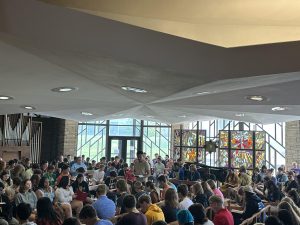
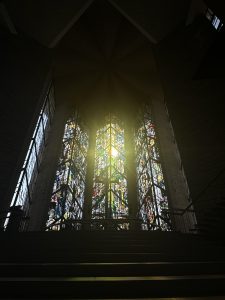
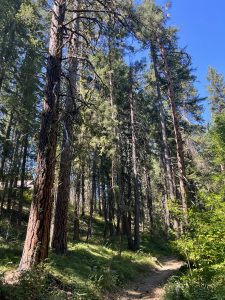 I am currently a little over halfway through my time here at the Guild. That sentence conjures up both feelings of restlessness and anticipation.
I am currently a little over halfway through my time here at the Guild. That sentence conjures up both feelings of restlessness and anticipation.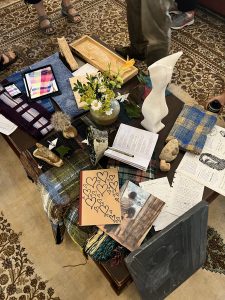
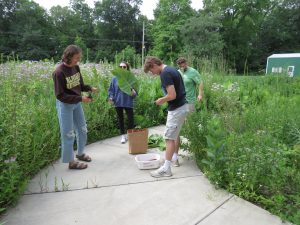
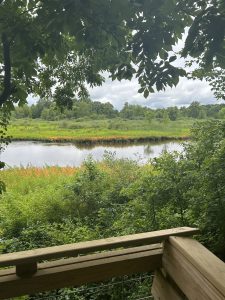
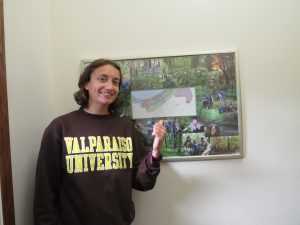
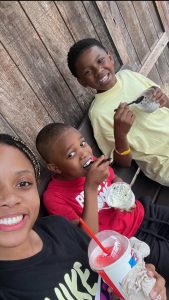 I am about two months into my summer internship at By the Hand Club for Kids, which has been gratifying. Unfortunately, my time here is quickly reaching its ending point. I am enjoying my time so much that Interning here is flying by so fast and does not feel like work!
I am about two months into my summer internship at By the Hand Club for Kids, which has been gratifying. Unfortunately, my time here is quickly reaching its ending point. I am enjoying my time so much that Interning here is flying by so fast and does not feel like work! 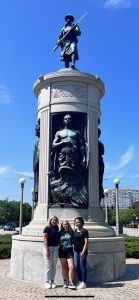
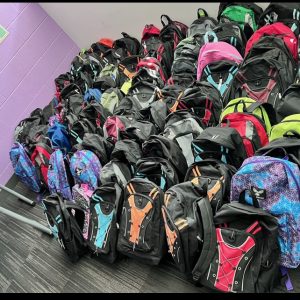
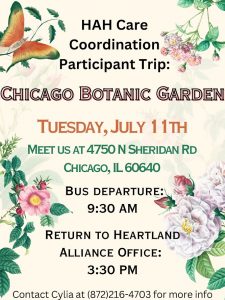 I’ve been lucky enough to have had plenty of great experiences these past few weeks working with the Care Coordination Team of Heartland Alliance Health! For some highlights, I’ve assisted in organizing outings to Lincoln Park Zoo and the Chicago Botanic Gardens, which were successful and offered fun, community-building activities to participants and staff. I’ve worked closely with one particular case manager in dividing up some of her weekly tasks involving participants, and have formed connections with participants while supporting them with attaining resources such as entrance into our program, public benefits, bus cards, medical care, and disability parking permits. I’m refining my administrative skills, especially by practicing case-noting, and am noticing an increase in my comfortability levels with directing my own tasks.
I’ve been lucky enough to have had plenty of great experiences these past few weeks working with the Care Coordination Team of Heartland Alliance Health! For some highlights, I’ve assisted in organizing outings to Lincoln Park Zoo and the Chicago Botanic Gardens, which were successful and offered fun, community-building activities to participants and staff. I’ve worked closely with one particular case manager in dividing up some of her weekly tasks involving participants, and have formed connections with participants while supporting them with attaining resources such as entrance into our program, public benefits, bus cards, medical care, and disability parking permits. I’m refining my administrative skills, especially by practicing case-noting, and am noticing an increase in my comfortability levels with directing my own tasks.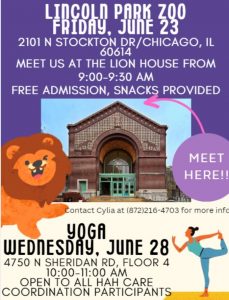
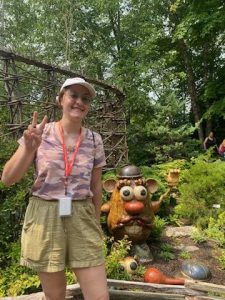
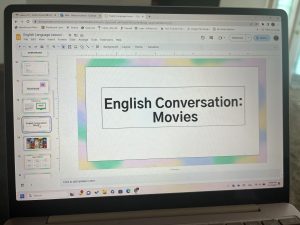 For the past few weeks I have been working with Heartland Alliance’s Vocational English Language Training Team. So far this position has been very eye opening for me and has helped me reflect on my future. In my first week it was all about observation. I was tasked with watching various classes ranging from Level 1, the lowest level taught, all the way up to their higher level courses. Each teacher had their own way of teaching with some using similar resources and others making their own curriculum. I tutored in high school so I had a small experience doing that but I had never experienced teaching at this scale before. At this point I wasn’t sure what my job here would look like or how this position would affect my future goals but I was willing to go along for the ride! As the weeks began to progress, I went from observing to actually assisting the teachers and tutoring a few students myself! I was participating in classes everyday of the week and tutoring three days a week up until our break. I didn’t know that similar to other types of schools and classes, ESL programs give their students a break for a few weeks before starting classes again for the new year. While this was a well deserved break for the students, it took place at a difficult time for me because I was just starting to get the hang of teaching. I was really getting used to my routine and getting to know each student in the classes I was working with but now this would be put on pause. I still needed to fill my time with something so I have been tasked with handling administrative work, continuing my tutoring with students who still want additional help, and participating in registering new students. I have also been completing my tutoring training in the meantime as well so I should be able to get a certificate for it by the end of this month. I think all of these current experiences have allowed me to seriously consider the different career paths I have thought of and things that I would like to have in a work environment.
For the past few weeks I have been working with Heartland Alliance’s Vocational English Language Training Team. So far this position has been very eye opening for me and has helped me reflect on my future. In my first week it was all about observation. I was tasked with watching various classes ranging from Level 1, the lowest level taught, all the way up to their higher level courses. Each teacher had their own way of teaching with some using similar resources and others making their own curriculum. I tutored in high school so I had a small experience doing that but I had never experienced teaching at this scale before. At this point I wasn’t sure what my job here would look like or how this position would affect my future goals but I was willing to go along for the ride! As the weeks began to progress, I went from observing to actually assisting the teachers and tutoring a few students myself! I was participating in classes everyday of the week and tutoring three days a week up until our break. I didn’t know that similar to other types of schools and classes, ESL programs give their students a break for a few weeks before starting classes again for the new year. While this was a well deserved break for the students, it took place at a difficult time for me because I was just starting to get the hang of teaching. I was really getting used to my routine and getting to know each student in the classes I was working with but now this would be put on pause. I still needed to fill my time with something so I have been tasked with handling administrative work, continuing my tutoring with students who still want additional help, and participating in registering new students. I have also been completing my tutoring training in the meantime as well so I should be able to get a certificate for it by the end of this month. I think all of these current experiences have allowed me to seriously consider the different career paths I have thought of and things that I would like to have in a work environment.